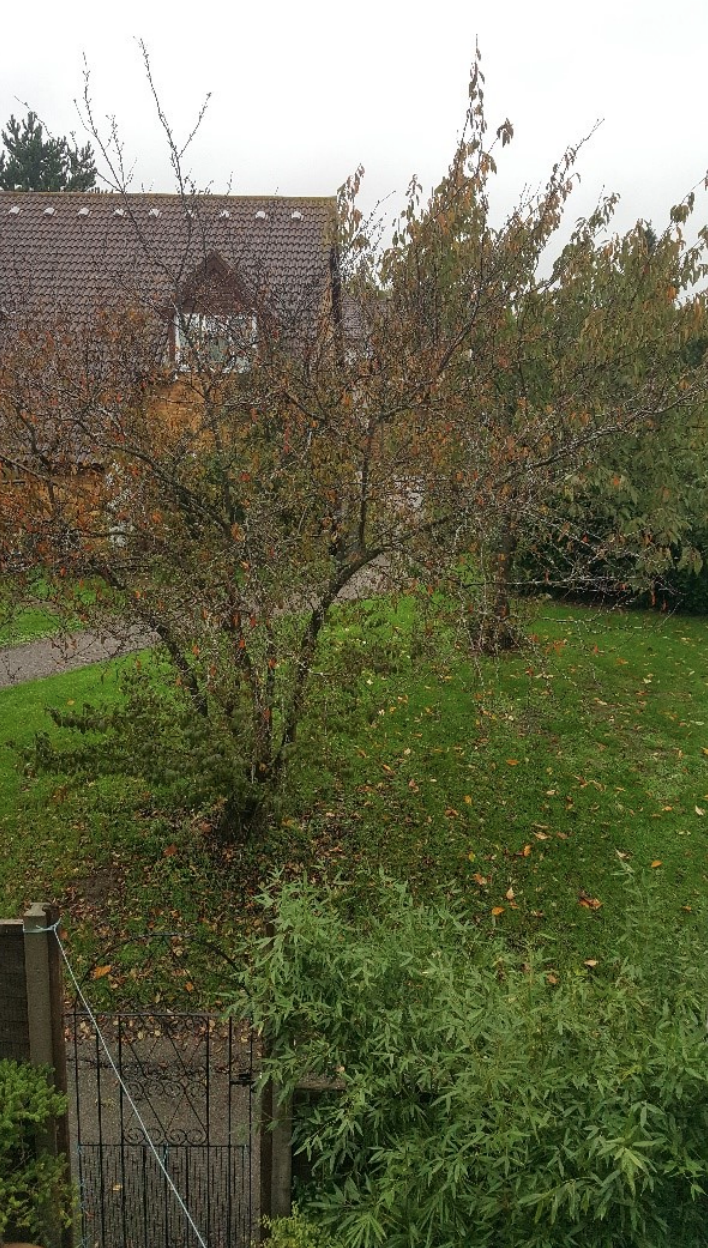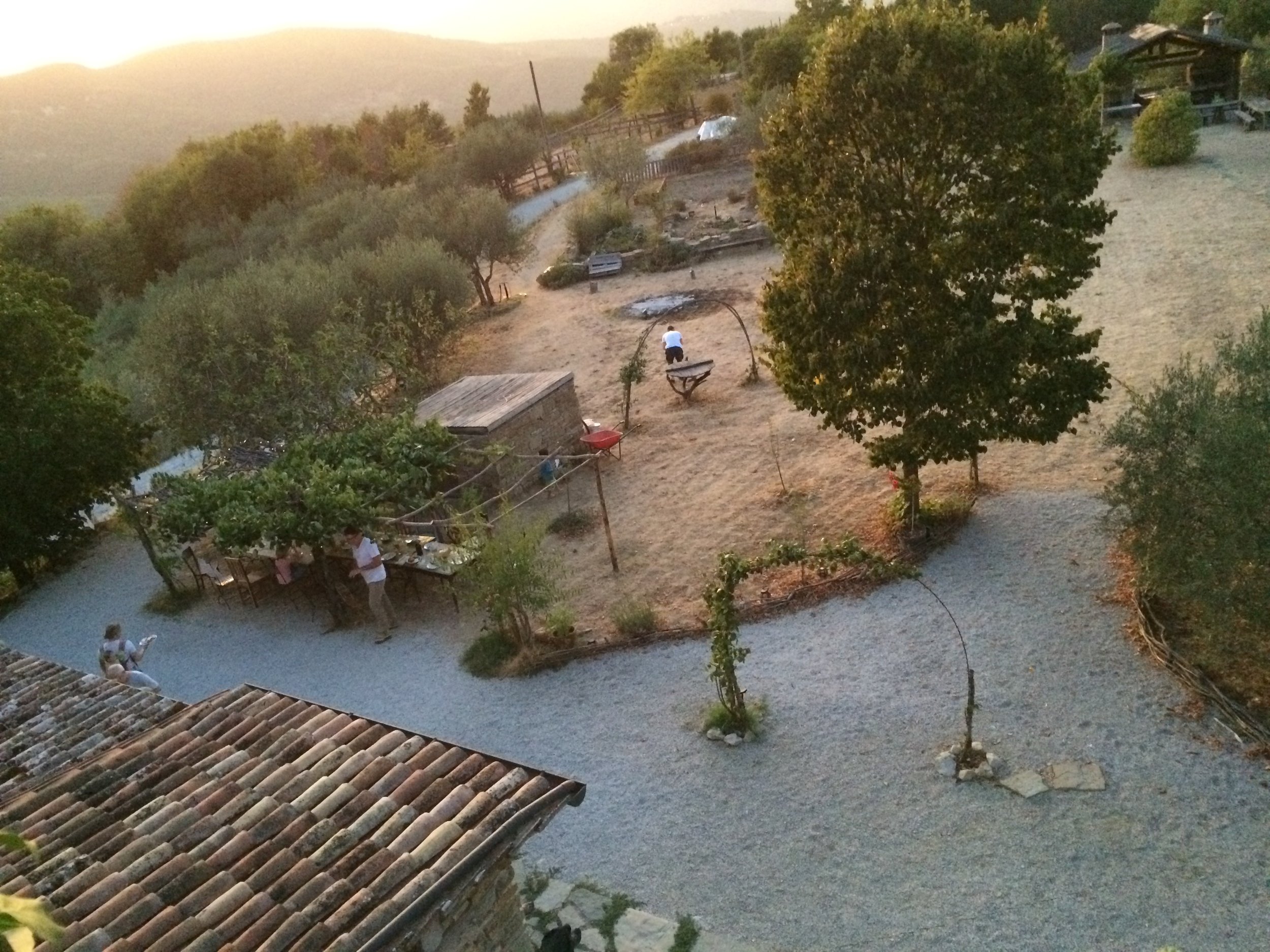From separation to belonging: bringing embodiment into ecology
While permaculture offers concepts and tools that are invaluable to the designer, it is important to remember that at its heart, it is an indigenous science rooted in direct experience and interconnection with the environment. This foundational aspect often gets lost. The following is a reflection on my inquiry into the dialogue between the human and the more-than-human—and how a body-oriented approach to teaching ecology and permaculture can bridge the gap between the story of separation and the story of connection and belonging.
Bursaries for this year’s Online Permaculture Design Course
We’re excited to share our surplus from previous courses by offering 4 bursary places on our upcoming Online Permaculture Design Course!
From ornamental to forest garden
One of the projects I work on is a private garden in Totnes. It is just under 1000 sq meters in size, has a couple huge yew trees and large laurel hedges surrounding it, which give it quite a lot of shade. It's been mostly kept as an ornamental garden, but includes some fruit trees and some nice edibles with ornamental value such as solomon's seal on the second picture. The brief for me is to turn the garden from an ornamental into a food forest, which is right up my street.
Stinging Nettles
This a great time of the year to harvest stinging nettle (one of my absolute favourites) and have fresh in soups, stir fries, pestos or teas.. or as you see here, I’m drying the tips for tea later in the year..
Observing Flow
As part of our online Permaculture Design Course, we encourage participants to spend time in nature to observe. Here are some reflections from Naomi, course participant in 2022/23 on observing flow, also published on her own blog livinglearninggettingolder.com.
Faces from the 2022 London Permaculture Design Course
Another Permaculture Design Course comes to an end. This was my first in-person course in a few years. I’ve really loved working with this group of talented and inspiring participants. I feel humbled by the course and encouraged for what’s next.
As, on these courses, we’re all learning from each other, we like participants to award the certificates to each other. Here are photos of some of the proud new certificate holders.
Permaculture Pathways: Opening New Doors
Hi I’m Liz and I am very fortunate to live in the Stroud Valleys with my partner. I am originally from the West Midlands and am proud to consider myself as a Black Country “wench”, having grown up in a former mining village next to a steel making town, all now long gone. That background, where folks don’t have much, has inspired a resilience in me to make the most of what we have, help who we can and grow as much food as possible.
Permaculture Pathways: From Stand Up Comedy to Permaculture and Beyond
I’m in my early 30s and have spent much of the last decade ‘being a comedian’ which has mostly meant doing stand up, until the last few years during which I’ve been lucky enough to spend most of my time writing and acting in sitcoms for the BBC. I feel lucky and I enjoy it, but nevertheless I increasingly felt like something was missing from my life and more specifically I felt disconnected from nature and like I didn’t spend enough time outdoors, which I suppose is what ‘led me to permaculture’.
Permaculture Pathways: Citizens' Science, Community Development and Farm Stays
People come to take Permaculture Courses for a number of reasons: some want to adopt a new way of thinking and bring more creativity into the work they are already doing, others don’t find meaning in their current occupation and are looking for alternatives; some are looking to buy land hoping to run a homestead, while still others have a small garden at home and would like to get more in touch with the soil and produce a few things for themselves.
Permaculture Pathways: Ecosystem Restoration, Mycology and Small-Scale Farming
People come to take Permaculture Courses for a number of reasons: some want to adopt a new way of thinking and bring more creativity into the work they are already doing, others don’t find meaning in their current occupation and are looking for alternatives; some are looking to buy land hoping to run a homestead, while still others have a small garden at home and would like to get more in touch with the soil and produce a few things for themselves.
Learning from the Woods… A Permaculture weekend at Hazel Hill Wood in Photos
On our yearly London-based Permaculture Design Course we’ve made it a tradition to spend one weekend away from the city. We had photographer Amy Behrens Clark join us to document some of our journey and asked a few of the participants about their experience learning about Permaculture.
Building on lessons learned, our PDC comes to Monestevole again in October 2018!
Organising a Permaculture Design Course (PDC) is generally a great opportunity for a project or a community to integrate more of the Permaculture principles into their workings. Developing a well functioning Permaculture system however takes time… This is why I am excited to go back to Tribewanted Monestevole this coming October to deliver a second fully accredited PDC. It will be an opportunity to build on the lessons learned from last year’s course while continuing to build the Permaculture community across Europe.
First round of Lambeth Grassroutes cycle tour
For some time now, Social Landscapes has been developing the idea of a bike tour to raise awareness of these projects, tell the stories of the people behind them and get people thinking differently about city living.
Coming Home - Rediscovering Time & Place
When did it happen that time became a forward line? When did the idea of an inevitability of progress settle in the psyche of the western mind? When did we as human beings set ourselves apart, thinking that we are at the head of the parade? And how does all of that affect our relationship to place and planet? These are questions I have been asking myself for a while, questions I might never have the answers to.
Permaculture tells a different story...
In a time that often seems dominated by conflict, economic deprivation and environmental destruction, Permaculture points into a different direction and offers opportunity.
Designing Edible Landscapes at Spires
This summer we are running a Permaculture inspired 24-hour Designing Edible Landscapes training course at Spires in Streatham. The course is funded by Lambeth and supported by Incredible Edible Lambeth and therefore free to attend for anyone who can make it.
Permaculture Principle: Small and slow...
Small and slow solutions is one of my favourite Permaculture principles. Not only does it relate to the type of interventions that a designer makes on a piece of land, it describes a helpful attitude to life.
Sarah reflecting on the 2-day Permaculture Course
First time novelist, Sarah Kisielowski, joined the Introduction to Permaculture weekend to find out how its principles might apply to creativity and writing.
Permaculture is an intuitive framework for change that reconnects us to each other, the natural world, and ourselves.
This was the opening definition...
Short version of PDC stories published on Permaculture Association blog
This week, the UK Permaculture Association published a short version of our 5 stories of Permaculture Design Course participants on their blog.
Find the full post here.
Permaculture Principle: Every Element Performs Multiple Functions
This is the first of a series of short blog posts exploring the core permaculture principles and relating them to our work at Social Landscapes.
Lately, in my work as well as on Permaculture courses, I have been exploring the topic of livelihood. Livelihood is often described as “that which sustains us” and for us in the west, more often, “that which brings in an income”.




















